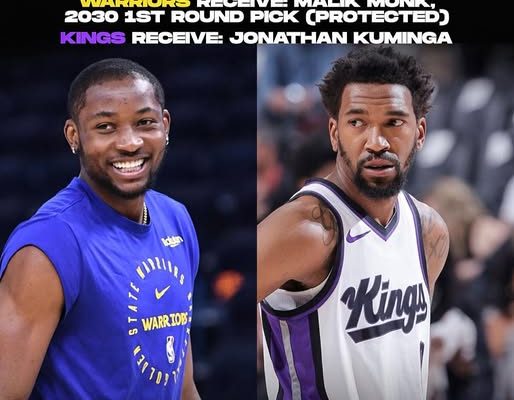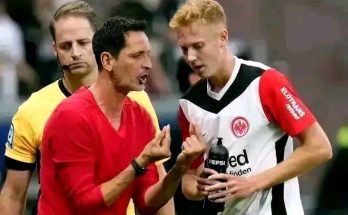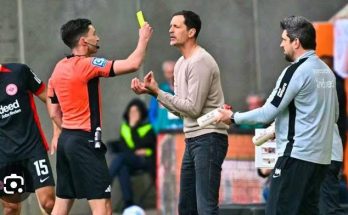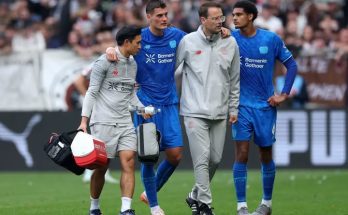PROPOSED DEAL: The Sacramento Kings have been willing to offer Malik Monk & a first-round pick to the Golden State Warriors for Jonathan Kuminga, according to Sam Amick. While on the surface this trade rumor might appear to be another typical off-season maneuver, a closer look reveals a deeply strategic shift for both franchises. Each team is at a pivotal crossroads — the Kings are trying to elevate their core to contender status after snapping their playoff drought, and the Warriors are balancing the last gasps of the Curry era with a future built around emerging stars. In this context, the notion of swapping Monk and a first-round pick for Kuminga is far more than just player movement. It’s a potential signal of two different visions for the future of Western Conference contention.
Malik Monk has emerged as one of the NBA’s most dynamic sixth men over the past two seasons. After reviving his career in Los Angeles and solidifying it in Sacramento, Monk averaged 15.4 points per game in the 2023-24 campaign, providing scoring bursts and critical shot-making down the stretch. He has been the engine of Sacramento’s bench unit, often finishing games and stepping into major roles when De’Aaron Fox or Kevin Huerter needed support. More importantly, his chemistry with Fox — dating back to their days at Kentucky — has been a stabilizing force on and off the court. Trading Monk would not only remove a significant scorer and playmaker from Mike Brown’s rotation, but it would also mean disrupting the core culture and continuity that has helped revive Kings basketball. That is no small cost.
However, what Sacramento gets in return — if the Warriors even entertain the deal — is equally compelling. Jonathan Kuminga has all the tools to become an elite two-way player in the league. At just 22 years old, he averaged 16.1 points, 4.8 rebounds, and 2.2 assists while shooting 53% from the field in 2024. His physical gifts — a 6’8″ frame, explosive athleticism, lateral quickness, and a developing shooting touch — make him an intriguing talent for any team, especially one looking to build a sustainable playoff core. The Kings are seeking precisely that. With Domantas Sabonis and De’Aaron Fox already anchoring their offense, a wing-forward like Kuminga could provide the perimeter defense, transition explosiveness, and versatility they currently lack. If Sacramento is serious about competing with the West’s elite — the Nuggets, Thunder, and Timberwolves — they need that kind of high-ceiling wing to complement their stars.
The motivations behind Sacramento’s rumored proposal become clearer when examining their recent trajectory. After breaking a 16-year playoff drought and nearly eliminating the Warriors in a dramatic 7-game series in 2023, the Kings stumbled slightly in 2024. They lost in the Play-In and fell short of expectations, showing cracks in their depth and defensive cohesion. While Keegan Murray continues to develop and Sabonis remains a double-double machine, the Kings have lacked that high-level wing stopper or athletic disruptor who can thrive in playoff intensity. Kuminga, in theory, gives them a shot at growing that piece organically. Furthermore, if the Kings believe that Keon Ellis and Colby Jones are ready to step into larger bench roles, then Monk’s offensive production may be seen as replaceable. The inclusion of a first-round pick sweetens the offer and signals Sacramento’s seriousness.
From the Warriors’ perspective, the decision is layered in complexity. Jonathan Kuminga was one of their best players last season. He made significant strides as a scorer, improved as a defender, and became more consistent in his effort and energy. For a team desperate for youth infusion and long-term upside, Kuminga was the brightest beacon. He gave Golden State a reason to believe that life after Steph Curry may not be a full rebuild. In short, trading him now — just as he appears ready to blossom into a star — feels counterintuitive. Why would a franchise known for long-term vision suddenly pivot to move its most promising young player?
The answer might lie in pressure and timing. The Warriors are clearly trying to navigate a murky transition phase. With Klay Thompson now in Dallas and Draymond Green aging rapidly, Golden State is in danger of drifting out of relevance. Steph Curry is still elite, but at 37, the window is rapidly closing. The front office may feel that it owes him one last real shot at contention. Malik Monk, while not a game-changing superstar, does offer the kind of offensive firepower and bench dynamism that Golden State has lacked in recent seasons. Imagine Monk in Steve Kerr’s motion offense — curling off screens, spacing the floor, and breaking down defenses in second units. He could be an ideal fit in the same way that Jordan Poole once was, only with more maturity and a more efficient shot selection. Add a first-round pick to that — potentially a late lottery asset — and the Warriors have a chance to recoup future value while chasing immediate success.
Yet there’s a flip side. If the Warriors give up Kuminga and fail to make a deep playoff run, they will have mortgaged a future star for a marginal gain. Monk is entering the prime of his career but is not considered a franchise-altering piece. His defense remains below average, and his playmaking, while improved, is still secondary-tier. Moreover, giving up on Kuminga now could backfire spectacularly if he becomes a 20+ PPG scorer and All-Defense candidate on another team. That’s the risk Golden State must weigh. Are they in a win-now mode desperate enough to make a short-term upgrade at the expense of their best young prospect? Or are they better off doubling down on youth and preparing for a Curry-less future anchored by Kuminga, Brandin Podziemski, Moses Moody, and Trayce Jackson-Davis?
There’s also the philosophical question of whether the Warriors, as currently constructed, are still capable of winning a title even with marginal upgrades. In 2024, they were outplayed by faster, younger teams. Chris Paul didn’t work out. Andrew Wiggins regressed. Their bench lacked bite, and their defense crumbled in critical moments. Even with Curry’s brilliance, they didn’t look like real contenders. Would adding Malik Monk and a rookie pick — while losing Kuminga — move the needle that much? Or does it simply rearrange deck chairs on a slowly sinking ship?
Sources close to the situation suggest that this is just preliminary conversation — and Golden State has not yet shown serious intent to part with Kuminga. But the fact that Sacramento is willing to give up Monk, a first-rounder, and potentially reset its bench depth shows how aggressive they’re willing to be in order to level up. General Manager Monte McNair knows the West is stacked and unforgiving. Teams like Oklahoma City, Minnesota, and Denver are not getting worse. The Clippers and Lakers still lurk. If the Kings want to be more than a good story and actually compete for conference finals and titles, moves like this — bold and calculated — are what it takes.
From a locker room standpoint, both teams would be altered significantly. Monk is beloved in Sacramento, known for his charismatic presence and big-game performances. Kuminga is starting to grow into a leader among the Warriors’ youth. The emotional cost of the deal is not negligible. Fans on both sides would feel the ripples, especially considering the Warriors-Kings budding rivalry over the last two postseasons. Sacramento offering assets to acquire a rising Warrior star feels almost poetic, as if seeking revenge not just for the losses but for the perceived ceiling that Golden State has imposed on their rise.
Financially, the trade makes some sense. Monk is a free agent after next season and will command a significant payday. If the Kings aren’t sure they’ll be able to keep him — or aren’t willing to offer $18-20 million per year — then flipping him for a controllable young asset makes sense. Kuminga is under contract and can be extended, giving Sacramento cost certainty and flexibility. Meanwhile, the Warriors could see Monk as a rental or part of a larger reshuffling of their cap situation, especially with Thompson’s contract gone.
Ultimately, whether this proposed trade materializes depends on how bold each front office wants to be. The Kings must decide if Kuminga is worth disrupting the present for the promise of a brighter future. The Warriors must evaluate whether Monk’s impact and a first-rounder outweigh Kuminga’s growth trajectory. Neither answer is obvious. But the mere existence of the conversation — as reported by Sam Amick — shows that both teams are thinking deeply, creatively, and perhaps even a little desperately about their path forward. The Western Conference doesn’t allow for complacency. Every offseason move carries implications. And this proposed Monk-Kuminga swap could, in time, be remembered as a turning point — for better or worse — for two franchises standing at the edge of very different basketball futures.



